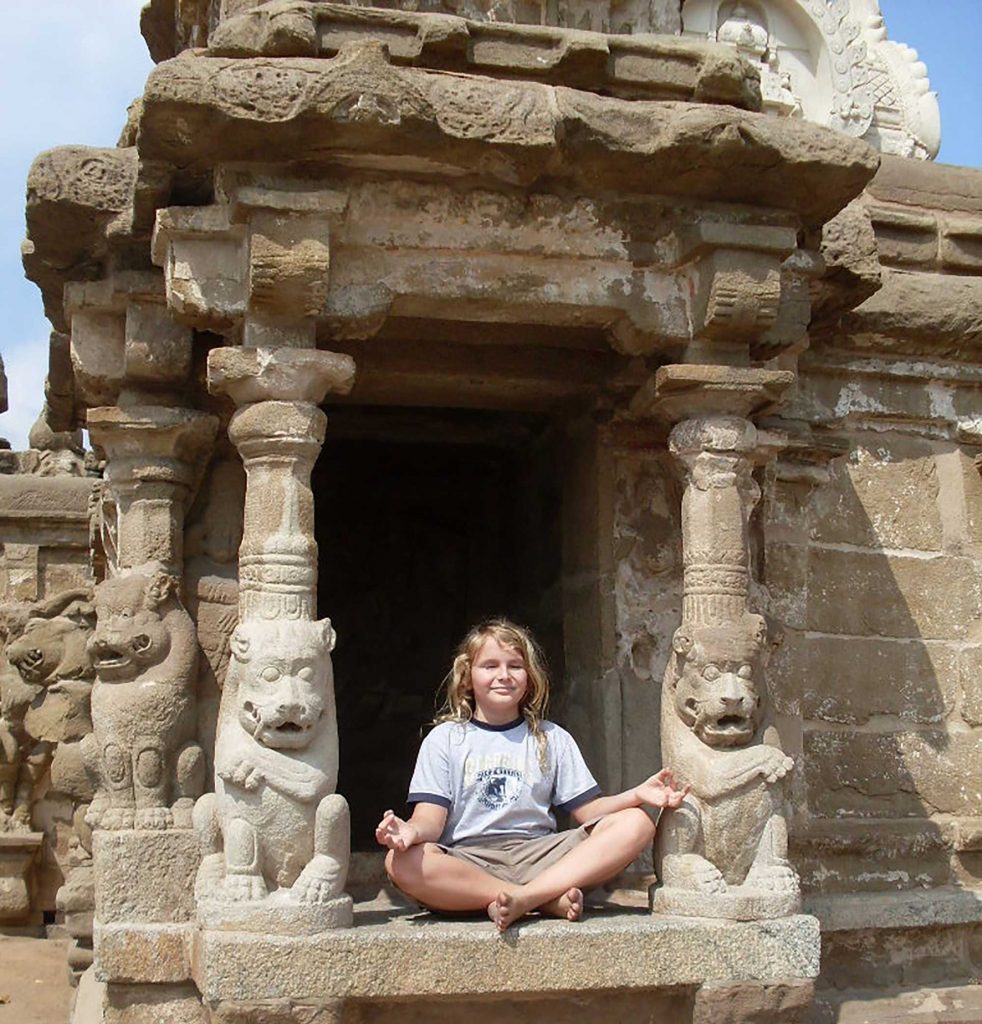It is important to have a steady and peaceful mind when you are dealing with turbulent times. Eknath Easwaran shares the power of the mantram
 My first encounter with an ocean storm came on my way to the United States on the Fulbright exchange program. I sailed from Bombay on an ancient P&O liner that had been in service before the First World War. There were no luxuries, but I enjoyed the trip because of the variety of passengers – from empire builders to scholars from the Far East – and the ever-changing beauty of the sea.
My first encounter with an ocean storm came on my way to the United States on the Fulbright exchange program. I sailed from Bombay on an ancient P&O liner that had been in service before the First World War. There were no luxuries, but I enjoyed the trip because of the variety of passengers – from empire builders to scholars from the Far East – and the ever-changing beauty of the sea.
But July in the Arabian Sea is monsoon season, and three or four days out our little ship began to be tossed like a toy by winds and rain.
A storm is a great equaliser. All distinctions of class and colour were swept away. Empire builders hung at the railings side by side with Asian academics, clutching identical brown bags. All of us cheered with relief when the weather passed and we were obliged to put in at Aden for repairs.
Sailing from Cherbourg to New York on HMS Queen Mary was an utterly different experience. The Queen Mary too was nearing retirement age. But she was fast, and positively luxurious by comparison with that P&O vessel. When we hit rough seas on the Atlantic, we sailed through majestically without a roll.
‘Why aren’t we being tossed about?’ I asked an officer. ‘Is it because of the ship’s size?’
‘No,’ he said proudly, ‘it’s the stabilisers. We installed them a couple of years ago. Now rough waters don’t bother her at all.’
Steadiness of mind
I often recall those two journeys to illustrate one of the most important truths I have ever learnt. Like a storm, life is a great equaliser. It does bring sunny days, but it is sure to bring storms as well. And regardless of class, colour, status, birth, or wealth, some of us sail through surely, while others flounder and even go under.
Few human beings are born with the skill to weather storms and stress with grace. Yet everyone can learn. We can’t control the weather outside, but we can control how we respond. Like the Queen Mary, we can install stabilisers – in the mind.
For it is in the mind that the storms of life really blow. What matters is not so much the turmoil outside us as the weather within. To a person with an agitated mind, something as minor as a rude driver can cause enough stress to ruin a day.
By contrast I think of Mahatma Gandhi, who gave himself away when he confessed, ‘I love storms.’ Gandhi began life as a timid child, but he learnt to keep his mind so steady that he could face tremendous crises with courage, compassion, wisdom, and even a sense of humour. This steadiness of mind is one of the most practical of skills. Without it, no one can face the challenges of life without breaking. And life today is challenging to say the least.
 The power of the mantram
The power of the mantram
Fortunately, we don’t have to develop these capacities. We already have them. But we need a calm mind to draw on them. When the mind is agitated or confused, the deeper resources we require are simply locked up inside. That is the practical importance of a calm mind.
So how do we calm the mind? One very powerful way is so simple that everyone can learn it easily, right now, even a child: the repetition of a mantram or ‘prayer word’ as it is called in some circles in the West. You can think of the mantram as a handrail for the mind. It gives you something to hold on to, so that you can steady yourself in confusing circumstances until your thoughts become clear.
You can draw on the power of the mantram like this at any time, wherever you happen to be, whatever you happen to be doing. But if you want the mantram to come to your rescue when you need it, if you want it to steady your mind in times of turmoil, you need to practice, practice, practice in calm weather.
Constant repetition drives the mantram deep into consciousness, where it can anchor your mind so surely that no amount of agitation can sweep you away. I must have given this advice a million times, but it can never be repeated too often. Throughout my life, no matter how assiduously I practised this skill, I have always been able to find more time, additional opportunities to put it to use. This is how we can gradually extend sovereignty over the mind.
